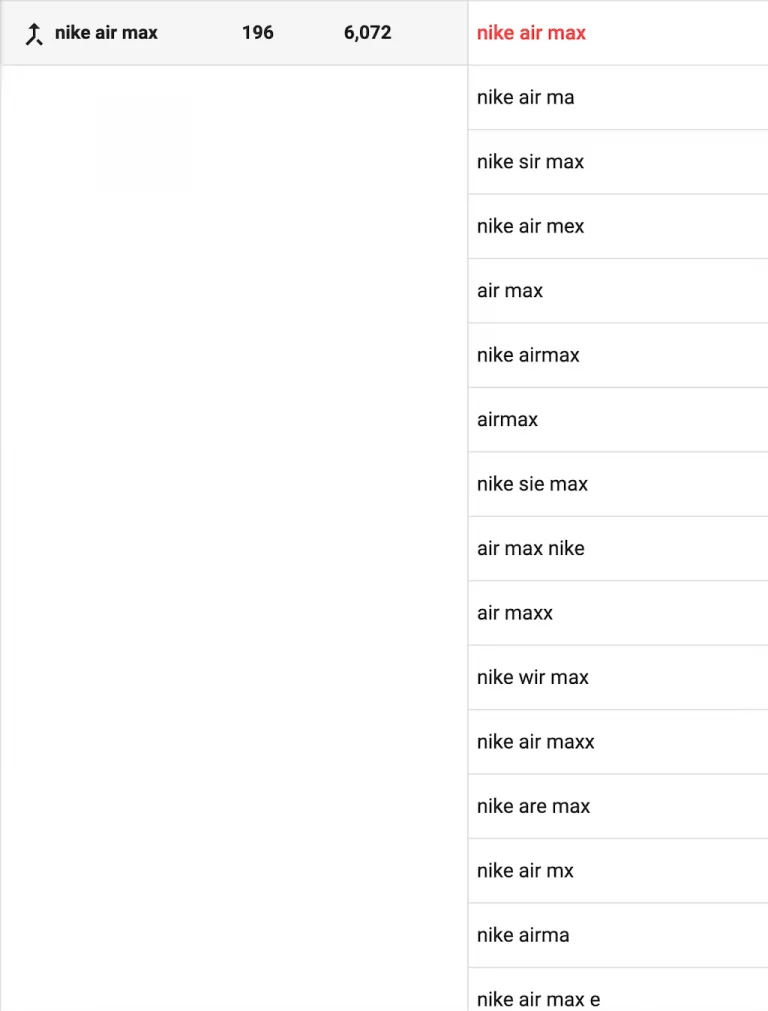Why searchHub?
SEARCH OPTIMIZATION WITH SEARCHHUB
tl;dr - Increasing search revenue by +10% from day one!*
If you are responsible for site search, you understand the strategic significance of this “small” yet important element for your online store. No place is this more visible than in bottom line conversion statistics. It would be remiss to disregard the disproportionately high rate of conversion from users who have in some way interacted with the site search. Conversion rates three to five times higher than sales via site navigation are not trivial. However, maintaining the search, monitoring the top search terms and zero hits is a Sisyphean task.

What Are Longtail Queries?
These types of queries sit somewhere between the top100 search terms and the zero result queries.
It’s no surprise that most search managers are happy when at least their top100 searches perform optimally. The unfathomable scale of site search longtail, dissuades even the most hardened ecommerce professional from touching it with a 10 foot pole.
However, the search terms that make up ecommerce longtail, account for the motherload of all search queries. Yep… over 90% of all queries entered on ecommerce retail sites fall into this longtail category. Understandably, they usually don’t get any attention. And that’s no fault of the search managers. It’s already damned near impossible to ever feel like you’ve adequately optimized your top100. But it’s bloody mind-boggling to even glance at the list of longtail keywords. Let alone consider optimizing them. There’s simply that many.

Manual Site Search Optimization is Impractical
It goes without saying that in everyday life, no human has the time to deal with all search queries. Oftentimes, the day has barely enough hours to do little more than a quick “once over” the zero results. If all goes well, you might be awarded the luxury of squeezing in the top50 to top200, give them a high-level analysis, check whether the results are, relatively, good and proof the KPIs.
This modus operandi has a catch: you never can, confidently, say that the search is optimized. Especially, considering the vastness of the longtail! We have customers with searchhub clusters exceeding 1,000 different spellings for a single search term! Manually attempting to manage scale of these proportions is clearly unthinkable.
That's where searchhub plays a critical role.
We created a one-of-a-kind AI to analyze the search history stuff referenced above. Now, we can easily answer common questions that we encounter among customers across every flavor of site search:
- Which terms are being searched, in all their conceivable, and inconceivable variations? To get this, we had to measure the importance of each minute KPI that in some way has to do with site search.
- How do shop visitors behave after searching for a particular keyword or any of its variants – tracking of anonymous customer behavior?
- What would it look like if I had a knowledge base with clusters of similar search terms that I could enrich with external data sources (e.g. product data).
How Is Searchhub Different From a Site Search Vendor?
The struggle to answer these questions led us to a unique solution. searchhub’s AI takes queries that lead to similar product purchases, and merges them together into clusters. For each cluster a so-called Master Query is defined. We get this by analyzing the KPIs of the individual search terms within a cluster further.
How Does Searchhub Pick a Master Query?
KPIs important for Master Query selection include:
- were there results?
- how many results were shown?
- was there interaction with the search result?
- what was the quality of the interaction?
- was something added to the cart post interaction?
- was something purchased?
Once a Master Query is defined, all other query variations within a cluster are excluded from the search and instead substituted by the master query!
The following is an excerpt from the cluster “nike air max” with 196 different spellings. We would replace all of these with “nike air max”.

Not only does this ease the strain of search management by decreasing time spent on search maintenance, but marketing and purchasing also benefit from this clustering!
How Do Marketing And Purchasing Departments Benefit From Search Query Clustering?
Marketing departments invest significant resources into enriching frequent and relevant search terms with redirects, curated results, marketing campaigns, product promotions and product advisors.
To this end, searchhub makes it easy to access rich search journey insights that can be used for targeted SEO actions. searchhub generally increases traffic to these keywords upwards of 20-30%. This is a consequence of more customers being funneled to master query landing pages. This translates into additional value for the colleagues in server side advertising!
Additionally, onsite search suggestions also benefit from query clustering!
Our proprietary tracking not only measures search frequency, but also transparently quantifies any other search KPI and trend. This means we know exactly which products to display from the very first letter your customers type. Naturally, these suggestions are based on our learnings drawn from master query performance.
Our SmartSuggest makes search suggestions more relevant, significantly varying the result-set in the process. This means we are able to put into practice what many search technologies only give lip service to:
“We deliver a window into the product assortment!” — Andreas Wagner (CTO searchHub.io)
Positive Effects of Query Clustering
Substituting search terms with the best performing Master Query has several positive effects depending on the site search you use. Below are some examples.
“My shop uses SolR / Elastic - what advantages do we have by using searchhub?”
- Site search Maintenance interface for non-IT people
- UI for configuring the Suggest feature
- Create and maintain synonyms through the UI
- Use Full Potential of Search Analytics
“We use Attraqt, Algolia, FACT-Finder, Findologic, etc. - what advantages do we have by using searchhub?”
- significantly less maintenance effort
- better overview of queries, search quality and KPIs
- new and existing campaigns, landing pages, curations and advisors receive more traffic.
Irrespective of your site search engine the following points are globally relevant.
- SIGNIFICANTLY better error tolerance with higher precision
- Cost reduction due to superior and faster maintenance
- More and flexible reporting functions
- Patented findability score that determines to which degree customers are able to use on site search to find and purchase products easily on your website.
- Search analytics that filters queries made by bots vs. humans!
- Product data quality optimization through transparent analyses of search intent.
searchhub Business FAQs
Does the above sound exciting? Then let’s dive into the really important questions:
- What does searchhub cost?
- How long does searchhub integration take?
- What do I gain from searchhub?
What does searchhub cost?
Unlike many solutions, our pricing is not based on page impressions, search queries or similar traffic indicators.
searchhub pricing follows these two guidelines:
- Which business KPIs (e.g. revenue, CR, CTR, value per search) are crucial for our customer in evaluating the success of search?
and
- How high is the potential impact of searchhub?
During the sales process, we create an analysis of a shop’s individual uplift potential with searchhub. This analysis uses your site search data, to illustrate the expected added value based on the clusters searchhub will generate.
This allows us to create an equitable value-added offer for all our customers. The monthly fee is then fixed, with no risk of increase over 12, 24, or 36 months.
What do I gain from searchHub?
“With searchhub, we increased the value per session ad-hoc by more than 20%.”
searchhub improves business KPIs of your entire search longtail.
- Higher ClickThroughRatios
- fewer zero result hits and
- higher conversion rates are the result.
This is why all our customers have a speedy return on investment!
Interested? Contact us at hello@searchhub.io we’ll set you up with your own demo!
*A/B-Tests have shown that CXP searchhub significantly increased our search driven revenue by more than 10% from day one.” Bernd Koch, Baldur Garten













